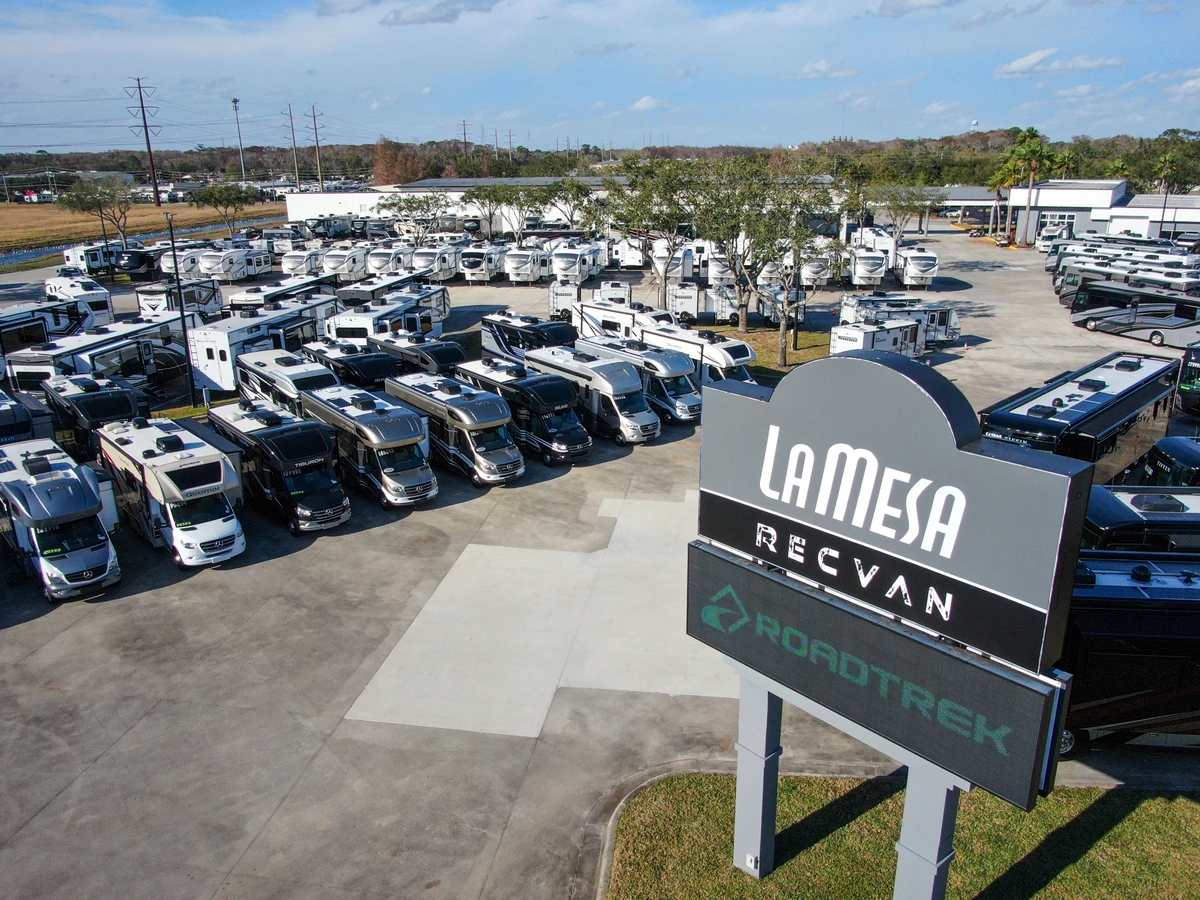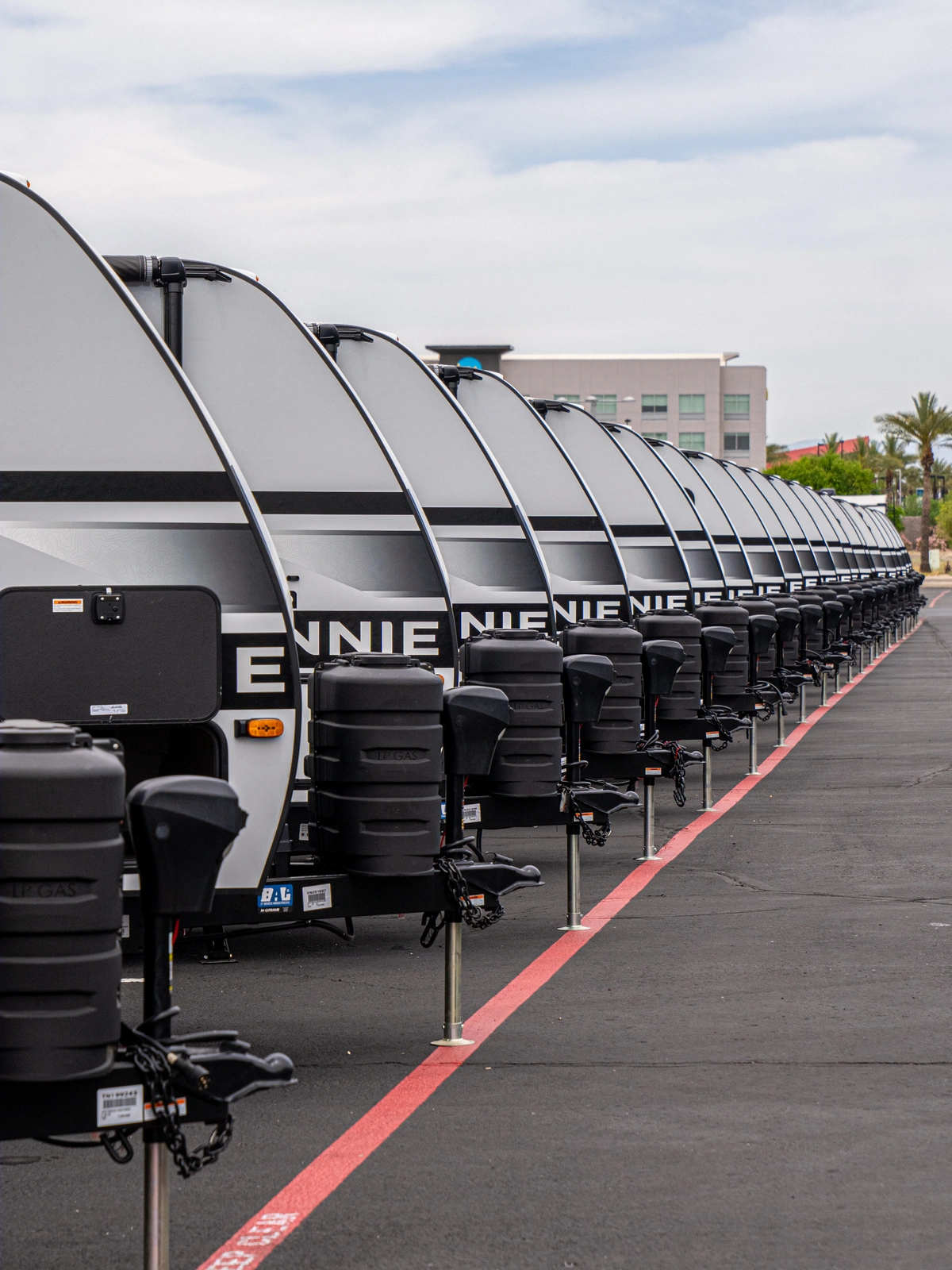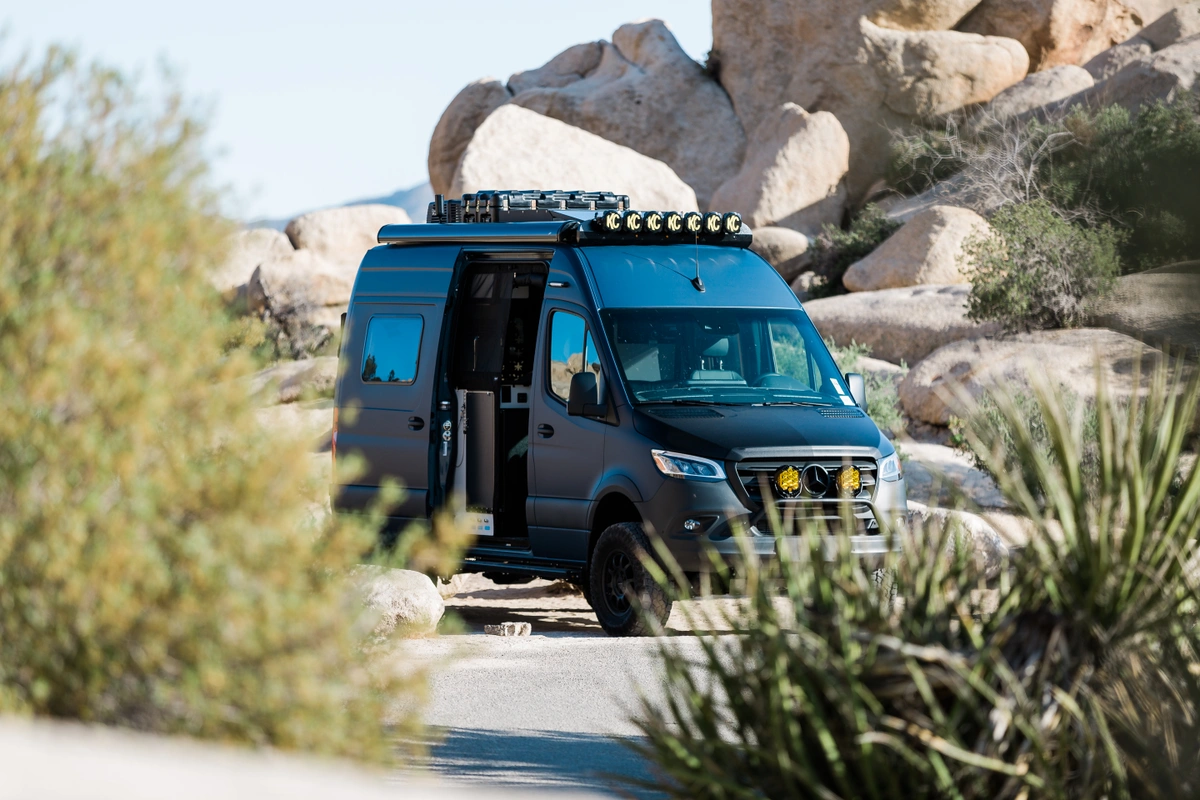There are many things to take care of on an RV, but one of the most important is the tires. Whether you have a motorhome or a towed RV, the tires are essential in allowing you to move from place to place. After all, being able to travel and see the country is the main reason to have the RV.
Regular care and maintenance of tires is not difficult, but it is vital to the health of your RV. Tires support the weight of your rig and keep you safe on the road. Caring for them properly improves your ride, handling, and fuel economy, as well as extends the lifespan of your investment. Here are some tips and tricks for keeping your tires in their best condition.
Guest Post By Robin Buck
Keep Tires Properly Inflated
Maintaining the correct inflation pressure in your tires is very important. It allows the optimum contact with the road surface, gives you better traction and handling, and promotes longer tire life. You should check your tire pressures on a regular basis and especially before a trip.
Tire manufacturers recommend checking your tires while they are cold, so we check our pressures in the morning before departing. "Cold" means before moving 100 feet or after 3 hours sitting still according to our tire manufacturer. Sometimes finding a strong enough tire pump for larger tires is difficult, so we carry a small air pressure pump to make it easier to keep our motorhome tires properly inflated.
Learn Correct Pressure for Your Tires
Refer to your RV's weight and balance tags for recommended tire pressures as a starting point until you have had a chance to weigh your RV. Additionally, look at the sidewall of each tire to find the maximum inflation pressure. However, you should be aware that the actual amount of pressure required depends on the weight of your fully loaded vehicle.
After you have loaded your RV with personal items, fuel, and water, you should then find a truck scale to get your specific weights by axle. Better yet, a four-corner weigh offered by select RV dealers/stations will give you the weight on each individual tire. To find the proper cold tire pressure, you will then consult the tire manufacturer's load and inflation tables for the best inflation recommendation based on your actual tire weights.
Evenly Distribute Weight
We all carry lots of stuff in our RV when we travel. While your clothes or dishes might not weigh that much, you have to remember that you are also carrying heavier things like fuel, water, batteries, and generators. All told, it can add several thousand pounds to the RV's weight! You want to make sure to balance your cargo throughout the RV to keep the weight evenly distributed from front to back and side to side.
When considering how all this weight is distributed in the RV, it is important to make sure you don't exceed your maximum weight allowed per axle and per tire. Axle weighing will give you your total weights and allow you to evenly distribute your load front to back. However, you will need a four-corner weight to properly check your load balance between the right and left side. Proper weight distribution will help improve the handling of your RV and prevent irregular tire wear.
Regularly Inspect Tires
As you travel, you should inspect your tires on a regular basis. By doing this you can catch any irregularities early and avoid potentially dangerous situations. Start by checking each tire's tread depth. The most accurate method is to use a tread depth gauge which you can get at an auto parts store. Follow your manufacturer's guidelines on when you should replace your tires due to tread depth, or more likely, time. We were surprised to learn that RV tires usually "time out" and need replacing well before they have worn out their tread.
Look closely for any nails or cuts in the tires. Examine the surfaces and sidewalls for any cracks or bulging. Check the tires for signs of uneven wear either across the tire or between different tires, which could be a sign the vehicle is out of alignment or that your tires need balancing.
Having a tire pressure gauge will make checking tire pressures an easy part of your inspection. Additionally, using a tire pressure monitoring system (TPMS) is an extremely valuable tool in watching your tires' pressures during travel. Should an abnormality occur, the TPMS can provide you some warning to allow you to slow down and pull off the road. Knowing how your tires are performing will greatly reduce your stress while driving.
Care and Maintenance
Day to day care of your tires centers around keeping them clean and dry. Dirty, oily road surfaces can deteriorate the rubber in your tires over time and cause premature tire aging. The best way to clean tires is simply with a mild soap, a soft brush, and water. You don't really need any fancy tire treatments and especially want to avoid any that contain petroleum products, alcohol, or silicone which can degrade tire rubber.
The sun's UV rays can also damage RV tires over time. If you are parked in a sunny area long term, it can be helpful to use tire covers to protect the rubber from drying out. Moving the RV regularly will also help your tires. The weight of sitting in one spot for extended periods can cause damage to your tires. Driving the RV will help to keep things in good shape and is always a great reason to take a trip.
A Healthy RV
If you keep your RV long enough, you will eventually have to replace your tires. However, by taking diligent care of them you can help them to last longer and stay in tip top shape. Proper tire care will not only keep you safe while you are traveling but will protect your investment for years to come. And that just means more RV fun for you!
Robin and her husband, Mike, are Air Force veterans and empty nesters who travel full-time in their Entegra Anthem motorhome. Always ready to explore, they love nature and wildlife, meeting new friends, and discovering America's many hidden gems. Robin chronicles their adventures and experiences on her travel blog RVing with Robin.


